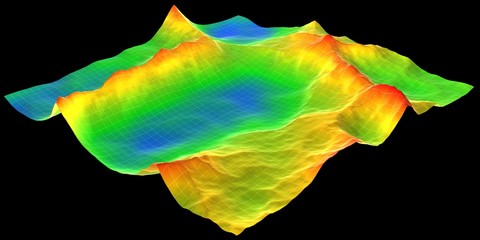
Geological mapping stands as the cornerstone of resource exploration, playing a pivotal role in interpreting the Earth’s complex composition and uncovering its hidden treasures. through meticulously charting the distribution of various rock formations, mineral deposits, and structural functions, geological mapping affords useful insights into the capability places of precious sources inclusive of minerals, fossil fuels, and groundwater. through a combination of subject observations, remote sensing strategies, and advanced technology, geologists can assemble distinct maps that are not most effective manual exploration efforts but also inform sustainable useful resource control practices. In essence, geological mapping serves as the roadmap for unlocking the Earth’s riches while ensuring responsible stewardship of its natural resources.
Advantages of Geological Mapping in Resource Exploration:
Geological mapping performs an essential function in useful resource exploration throughout diverse industries which includes mining, oil and gas, and geothermal power. here’s why it’s so vital and its key advantages:
Identifying resource capacity: Geological mapping enables in figuring out regions with highly useful resource capability by analyzing the distribution and traits of geological formations. This data guides exploration efforts to recognize areas that probably to comprise valuable sources including minerals, hydrocarbons, or geothermal reservoirs.
Expertise in Geological Systems: By way of mapping geological systems like faults, folds, and rock kinds, geologists can better apprehend the subsurface situations. This understanding is crucial for predicting the presence and conduct of resources, consisting of how oil or mineral deposits might be disbursed within the Earth’s crust.
Locating Mineral Deposits: Geological maps provide valuable data approximately the distribution of mineral deposits. By studying the geological formations and systems associated with recognized deposits, geologists can make educated guesses approximately the presence of comparable deposits in close by areas, reducing exploration dangers and expenses.
Optimizing Exploration Strategies: distinctive geological maps help in designing powerful exploration strategies. Geologists can prioritize areas with the very best ability for useful resource discovery, allocate assets efficaciously, and plan exploration activities together with drilling or geophysical surveys extra efficaciously.
Environmental control: Geological mapping additionally aids in environmental management by figuring out sensitive areas that want safety for the duration of resource extraction activities. information the geological traits of a place allows for better making plans and mitigation of environmental impacts.
Danger reduction: with the aid of offering a comprehensive understanding of the subsurface geology, geological mapping reduces exploration dangers. businesses can make greater knowledgeable funding selections based totally on the geological data, minimizing the possibilities of unsuccessful exploration ventures.
Regulatory Compliance: in lots of jurisdictions, geological mapping is a requirement for obtaining exploration allows and complying with environmental regulations. accurate geological data is crucial for demonstrating the feasibility and environmental sustainability of resource extraction tasks.
Clinical research: Geological mapping contributes to scientific studies by using advancing our understanding of Earth’s approaches and history. It presents precious information for analyzing phenomena along with plate tectonics, sedimentary basin evolution, and volcanic activity.
Conclusion:
In conclusion, geological mapping is indispensable in resource exploration because it gives critical facts for identifying, assessing, and exploiting mineral and strength resources at the same time as ensuring environmental sustainability and minimizing dangers. It forms the foundation of successful exploration endeavors, driving the efficient and accountable improvement of natural sources for the advantage of society.